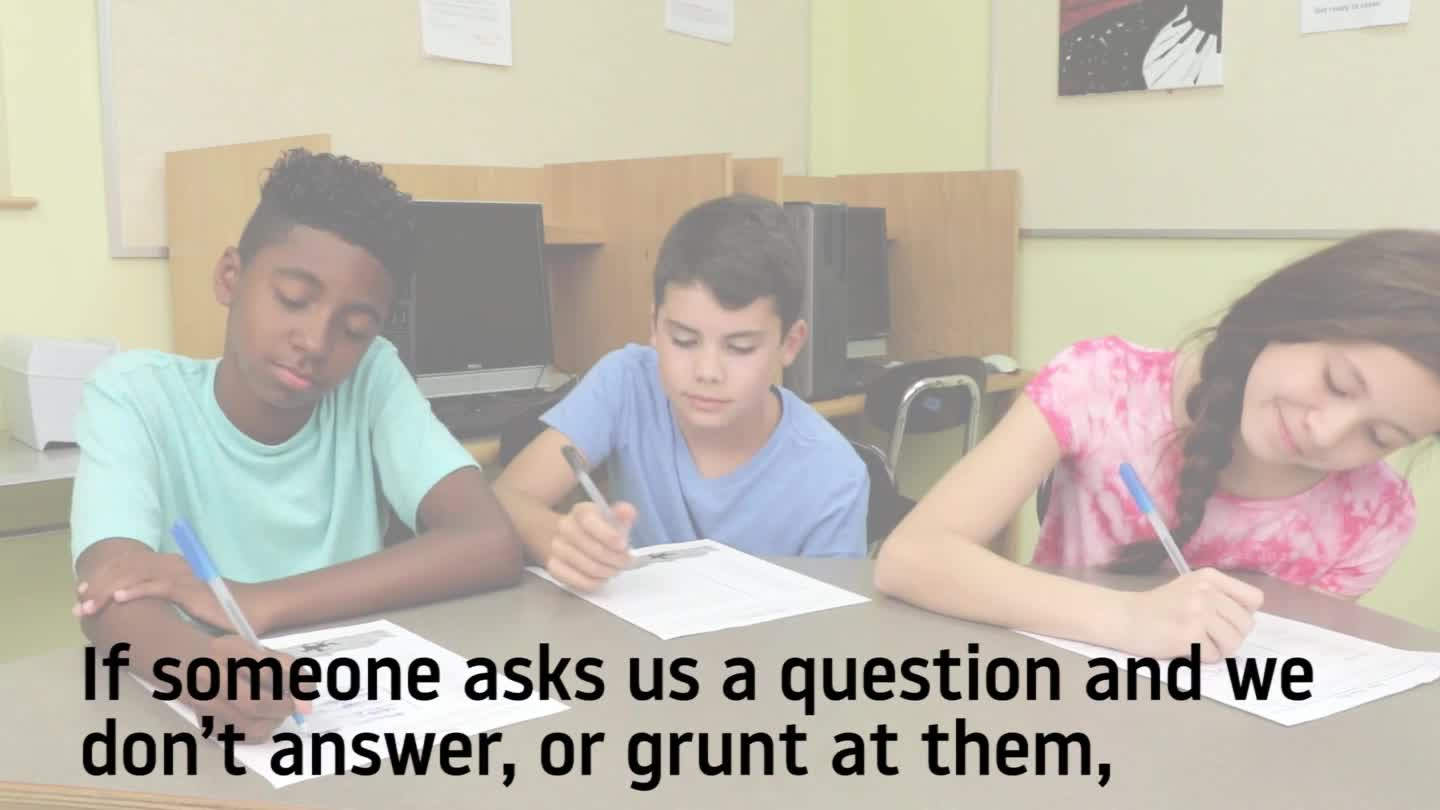
Introduction
Social-Emotional Learning plays a significant role in the development of students in Special Education. One essential skill for these students to learn is the importance of answering questions when asked by others. Not responding or providing an unclear answer can lead to confusion and hurt feelings. This blog post will explore a no-prep activity, discussion questions, related skills, and next steps to help educators teach this valuable skill effectively.
No-Prep Activity
Role-playing is an excellent no-prep activity for teaching students the importance of answering questions. Here’s a simple way to implement this activity in the classroom:
- Divide the students into pairs.
- Give each pair a scenario where one student asks a question, and the other student must respond.
- Have the students practice the scenario, first with the responder not providing a clear answer, and then with the responder giving a polite and appropriate response.
- After practicing, have the students switch roles and repeat the process.
- Finally, bring the class together to discuss their experiences and what they learned from the activity.
This activity helps students understand the impact of their responses on others and the importance of answering questions politely and clearly.
Discussion Questions
After completing the no-prep activity, use these discussion questions to stimulate further conversation and understanding:
- How did it feel when your partner didn’t provide a clear answer to your question? How did it affect your emotions and understanding of the situation?
- Why do you think it’s important to give a clear answer when someone asks a question? How does it help build positive relationships?
- Can you think of a time when someone didn’t answer your question, and it made you feel sad or confused? How did you handle the situation?
- What strategies can you use to make sure you provide clear and polite answers to questions, even when you don’t feel like responding or don’t know the answer?
- How can practicing this skill help improve communication and social interactions with others?
Related Skills
Teaching students the importance of answering questions is just one aspect of Social-Emotional Learning. Here are some related skills that can further enhance students’ development in this area:
- Active listening: Encourage students to listen attentively to others and show that they understand and care about what is being said.
- Empathy: Help students develop the ability to understand and share the feelings of others, enabling them to better respond to questions and social situations.
- Assertiveness: Teach students how to express their thoughts, feelings, and needs in a respectful and confident manner, which can improve their ability to answer questions effectively.
- Conflict resolution: Equip students with strategies to handle disagreements and misunderstandings that may arise from unclear or unanswered questions.
Next Steps
Now that you have a better understanding of how to teach the importance of answering questions in Special Education, it’s time to put these ideas into practice. To help you get started, we encourage you to sign up for free samples of this skill and others at Everyday Speech. These resources will provide you with additional tools and materials to support your students’ Social-Emotional Learning journey.

